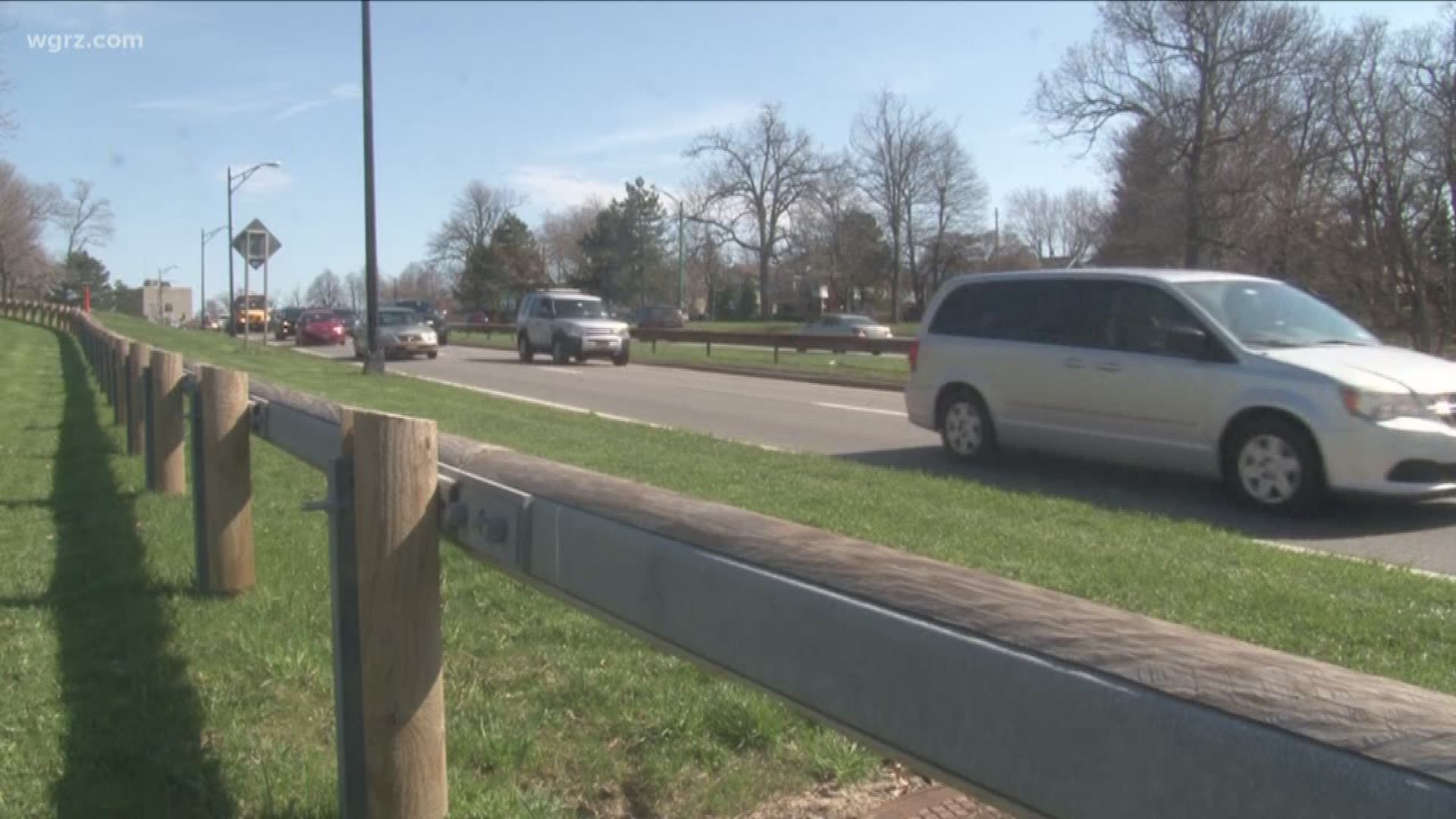BUFFALO, N.Y. - Four months after the New York State Department of Transportation announced it would reconsider long-term options for the Scajacuada, the same advocacy groups that forced the agency back to the drawing board continue to apply unrelenting pressure.
Led by the Scajaquada Corridor Coalition and Buffalo Olmstead Parks Conservancy, neighbors and park users successfully fought NYSDOT's redesign plan last year, arguing that it did not address comprehensive needs for the whole corridor and failed to adequately reconnect Delaware Park.
The $100 million plan, which would have added traffic signals, bike paths and raised medians, now remains on hold as the state agency reviews the community's demands. A NYSDOT spokesperson told 2 On Your Side this week that she could not provide any update on the process.
Advocates are trying to keep their voices alive.
"We need to keep this process moving," said Brian Dold, the director of planning and advocacy for the Buffalo Olmstead Parks Conservancy, "because I don't think anyone's happy with the road as it stands now."
This May marks three years since a tragic accident led to immediate changes on the 198, including stop signs for merging traffic, new barriers to protect Ring Road and the speed limit reduction to 30 miles per hour. Tickets spiked after the speed limit was ordered lower by the governor -- and many drivers complain that it's too slow of a limit -- but these are short-term reforms, Dold says.
In the long-term, Dold and other neighbors want to see a more encouraging plan released by NYSDOT next time around, whenever that may be. In the past, neighbors complained the state's proposal simply did not go far enough in creating a pedestrian and bike-friendly atmosphere. For example, the plan would not have converted the stone bridge over Delaware Avenue into a pedestrian-only walkway, rather than allowing vehicular traffic as it currently does.
Dold says the restoring the park to its people-friendly origins is essential.
"We can't leave the legacy and regret we've felt for these roadways over the last 75 years. We can't perpetuate that," he said, "and leave that for the next generation."

